Médecine alternative
Médecine alternative
Les différentes approches
La question des médecines complémentaires et alternatives fait actuellement couler beaucoup d’encre. Ces traitements sont-ils efficaces ou nuisibles? Quand est-il des plantes pour traiter certains symptômes?
Il est essentiel d’aborder cette question avec discernement et précaution. Alors que certaines personnes trouvent un soulagement dans ces approches, d’autres peuvent rencontrer des résultats mitigés ou même des effets secondaires indésirables. L’efficacité de ces traitements peut varier considérablement selon plusieurs facteurs, tels que le type et le stade du cancer, votre état de santé global et la manière dont ils sont utilisés en complément des traitements médicaux traditionnels.
Dans cette section, nous allons examiner de plus près certaines des médecines complémentaires et alternatives, y compris les vitamines et les suppléments souvent utilisés pour le cancer de la prostate.
Si vous avez des questions ou des préoccupations, n’hésitez pas à nous contacter au 1 855 899-2873 ou via le clavardage pour discuter avec l’un de nos professionnels de la santé spécialisés en uro-oncologie.
Ce site Web vous offre des renseignements sur les médecines complémentaires et alternatives. Nous ne cherchons pas à nous substituer à votre médecin ou à d’autres professionnels de la santé. Au contraire, PROCURE vous encourage à discuter avec votre médecin de toute décision concernant vos traitements ou vos soins. Celui-ci ou un autre professionnel de la santé qui vous est recommandé devrait contrôler tous les traitements concernant votre santé physique ou psychologique. PROCURE décline toute responsabilité au sujet des thérapies, des produits ou des services mentionnés dans ce site.
De quoi parle-t-on
Les traitements complémentaires et parallèles désignent un « groupe de systèmes médicaux et de soins de santé, de pratiques et de produits dont on ne considère pas actuellement qu’ils font partie de la médecine traditionnelle […] » (Traduction – National Centre for Complementary and Alternative Medicine (NCCAM), 2015). Ces traitements ne font pas partie des traitements traditionnels ou du courant dominant.
Même si les expressions sont souvent utilisées l’une pour l’autre, les traitements parallèles diffèrent beaucoup des traitements complémentaires. Vous trouverez ci-dessous des définitions de la médecine traditionnelle, de la médecine complémentaire, de la médecine parallèle ou douce et de la médecine intégrative. Elles vous aideront à les distinguer les unes des autres si vous les envisagez.
Médecine traditionnelle (courant dominant) – traitements médicaux ou chirurgicaux acceptés et pratiqués dans le système de santé canadien. Ces traitements sont fondés sur la recherche qui les rend efficaces et sûrs.
Traitements complémentaires – traitements utilisés conjointement ou en même temps que des traitements traditionnels. Ils servent le plus souvent à atténuer les effets secondaires des traitements traditionnels.
Traitements intégratifs – utilisation mixte des traitements traditionnels et des traitements complémentaires lorsque des preuves scientifiques ont montré que cette utilisation était sûre et efficace.
Traitements parallèles – traitements utilisés en lieu et place des traitements traditionnels.

Thérapie complémentaire
Les diverses thérapies
À titre d’exemples, les techniques de relaxation comme la massothérapie, l’acupuncture, la méditation et même le rire peuvent avoir des effets très favorables.
Elles peuvent stimuler votre système immunitaire, atténuer la douleur, diminuer les hormones de stress et abaisser la tension artérielle.
Il en va de même pour le yoga, qui peut favoriser la détente et améliorer la qualité du sommeil pendant la durée du traitement.
Diverses thérapies complémentaires conviennent à diverses situations, par exemple:
- hommes sous hormonothérapie qui veulent réduire leur risque de maladie cardiaque, de diabète et de perte osseuse;
- hommes sous chimiothérapie qui veulent atténuer leurs effets secondaires comme douleurs ou nausées;
- hommes qui ont besoin d’aide pour diminuer leurs effets secondaires (p. ex., perte de contrôle de la vessie) après avoir subi une intervention chirurgicale ou une radiothérapie.
Résultats
Résultats de la recherche
La recherche a montré qu’un bon nombre de thérapies complémentaires peuvent être employées sans danger en même temps que les traitements classiques contre le cancer.
Leurs bienfaits
Certaines personnes sentent que d’employer une thérapie complémentaire les aides à avoir une impression de contrôle et à sentir qu’elles participent davantage à leurs soins de santé. D’autres personnes estiment que les thérapies complémentaires les aident à améliorer leur qualité de vie.
Élaborer votre propre programme
Si votre centre de traitement du cancer ne propose pas de thérapies complémentaires, rien ne vous empêche d’élaborer votre propre programme intégré en vous adressant à des professionnels compétents de votre collectivité.
Manipulation corporelle
On compte de nombreux traitements par manipulations corporelles. Toutefois, il est impossible pour PROCURE de vous indiquer où ces services sont offerts, si les personnes qui dispensent ces soins sont compétentes et si ces méthodes peuvent vous aider. Nous vous encourageons à en discuter avec votre médecin. Retrouvez sur cette page les différentes approches
Thérapies psychologiques
Cette section porte sur les thérapies faisant appel principalement au processus mental. Avant d’entreprendre une de ces thérapies, nous vous encourageons à consulter votre médecin. Retrouvez sur cette page les différentes approches

Thérapies parallèles
Il est important de noter ce qui suit
L’efficacité des traitements parallèles (médecines douces ou alternatives) ne sont pas nécessairement fondés sur de la recherche scientifique et il n’a pas été démontré qu’ils étaient efficaces et sûrs pour traiter le cancer. Retarder ou refuser des traitements traditionnels pour recourir à des traitements parallèles peut avoir de graves conséquences sur votre santé, dont la croissance de la tumeur cancéreuse ou la propagation du cancer à d’autres parties du corps.
Pour les nombreuses personnes qui ont déjà recours aux médecines douces, le manque de connaissances scientifiques au sujet de ces thérapies peut constituer un risque et occasionner, par exemple, des effets indésirables à cause d’un dosage inadéquat, d’une mauvaise utilisation du produit ou de l’interaction médicamenteuse entre deux traitements.
Pourquoi vous vous embarquez…
En médecine parallèle, il n’est question ni de médicament ni d’opération chirurgicale. Bien des gens se détournent de la médecine conventionnelle parce qu’ils craignent la table d’opération ou les effets indésirables des médicaments. La médecine parallèle, au contraire, est attrayante parce qu’on n’y retrouve pas ce type de traitements. En outre, la médecine conventionnelle peut souvent causer du tort à ses patients. Les traitements de médecine parallèle sont habituellement moins risqués, moins susceptibles de causer un tort direct.
Les thérapies parallèles relèvent de la pensée magique. Des idées sans fondement scientifique comme la magie sympathique sont populaires parmi les rangs des praticiens de médecine parallèle et leurs clients. Certains rejettent la médecine conventionnelle simplement parce qu’elle n’est pas magique. Il peut sembler parfois que la médecine accomplit des miracles, mais ces miracles reposent sur la science, pas la foi.
Rappelons ici que les traitements parallèles, contrairement aux traitements complémentaires, remplacent les options de traitements d’un cancer de la prostate.
Thérapies naturelles
Aromathérapie
L’aromathérapie est un traitement qui utilise les odeurs sous forme d’huiles essentielles (extraits ou essences) de fleurs, d’herbes et d’arbres. Ces arômes ont la réputation de favoriser la santé et le bien-être. Cette technique, souvent employée dans une variété de cas, inclut le soulagement de la douleur causée par la chimiothérapie.
Plantes médicinales
Il existe de nombreuses catégories de plantes médicinales classées selon leurs effets spécifiques. Ces plantes peuvent avoir des propriétés anti-inflammatoires, antispasmodiques, antimicrobiennes et hypotensives. Certaines pourraient être adaptogènes (accroissent la capacité d’adaptation et la résistance de l’organisme) et d’autres toniques (stimulent l’énergie de base). Les préparations à base de plantes peuvent être consommées oralement : thés, capsules, comprimés ou encore extraits et teintures; d’autres à usage topique sont offertes sous forme de baume ou de crème.
Homéopathie
L’homéopathie a été fondée en 1796 par un médecin allemand, Samuel Hahnemann. Cette thérapie repose sur le principe selon lequel un malade peut être guéri par une dose infinitésimale d’une substance qui, chez un individu sain, provoque les mêmes effets que la maladie à soigner : c’est la ‘loi de similitude’. Les préparations homéopathiques sont établies à partir d’un mélange de principes actifs progressivement, mais fortement dilués. À la fin de cette cascade de dilutions, il ne reste plus que quelques molécules de principe actif dans la préparation finale. L’homéopathie actuelle utilise un millier de remèdes différents. La grande majorité des quelques tests cliniques portant sur l’efficacité de l’homéopathie sont peu concluants. Il semblerait que l’effet placebo joue un rôle important. Le débat reste ouvert cependant. L’homéopathie présente toutefois l’avantage de prescrire des médicaments n’entraînant pas d’effets secondaires indésirables.

Thérapie complémentaire
Bien manger, cela commence par la consommation d’une variété d’aliments au quotidien afin d’obtenir tous les éléments nutritifs essentiels à une bonne santé. Au lieu de consommer des suppléments, essayez de répondre à vos besoins en nutriments en mangeant des aliments santé. Cette section vous donne toute l’information nécessaire pour faire des choix judicieux et pourquoi il faut être prudent.
Le rôle des vitamines
Les vitamines sont des éléments nutritifs essentiels qui doivent être consommés chaque jour. Afin de combler vos besoins quotidiens, les vitamines doivent provenir des aliments et boissons que vous consommez. La plupart des gens obtiennent suffisamment de vitamines en suivant les recommandations du Guide alimentaire canadien et en mangeant une variété d’aliments santé.
Les deux types de vitamines les plus courantes
Il existe deux sortes de vitamines: les vitamines hydrosolubles et les vitamines liposolubles.
Vitamines hydrosolubles:
Les vitamines B1, B2, B3, B6 et B12, la vitamine C, la biotine et l’acide folique. Elles ne sont pas emmagasinées en grandes quantités dans le corps, et toute quantité superflue est rejetée dans l’urine.
Vitamines liposolubles:
Les vitamines A, D, E et K. Ces vitamines peuvent être stockées dans notre corps. Il n’est pas recommandé d’avoir de grandes quantités de vitamines liposolubles dans notre corps, car cela peut provoquer des problèmes de santé.
Vitamine – Fonction – Sources alimentaires
Quel aliment fournit quelle vitamine? L’information sur cette page vous aidera à comprendre pourquoi il est important de consommer certaines vitamines courantes en quantité suffisante. Vous y trouverez également les meilleures sources alimentaires de ces vitamines.
Compléments alimentaires et cancer
De quoi s’agit-il?
Ce sont par exemple des préparations à base de vitamines, de minéraux, de plantes ou encore d’antioxydants, disponibles sans prescriptions médicales en pharmacie, dans les grandes surfaces ou via Internet. De nombreuses personnes y ont recours dans le but de rester en bonne santé, et parfois dans l’espoir de prévenir l’apparition d’un cancer.
Pas sans avis médical
On vous recommande de ne recourir aux compléments alimentaires que sur avis médical. Votre médecin peut, par exemple, vous en prescrire s’il détecte une carence (c’est assez fréquent pour la vitamine D), ou dans certaines indications médicales bien déterminées.
Des études néerlandaises montrent que 40% de la population utilisent l’un ou l’autre complément alimentaire. Or, le Fonds Mondial de Recherche contre le Cancer (FMRC) le déconseille fortement, car leur effet protecteur n’est pas prouvé et les compléments alimentaires pourraient même causer des effets indésirables.
Autres résultats d’études
Plusieurs études montrent même un risque accru de développer certains cancers suite à la prise de compléments multi-vitaminés et/ou d’antioxydants en grande quantité.
- Des études menées auprès de fumeurs afin de tester l’effet protecteur supposé du bêta-carotène (une substance que notre organisme transforme en vitamine A) ont été arrêtées prématurément, car les patients développaient plus de cancers du poumon lors de la prise de fortes doses de bêta-carotène sous forme de compléments (20 mg/jour)!
- Le rétinol (une substance que notre organisme fabrique au départ du bêta-carotène) est également suspecté de favoriser le développement de cancers lorsqu’il est consommé à fortes doses (25 000 unités internationales/jour). Une importante consommation d’acide folique (> 0,4 mg/jour pendant plus de 5 ans) pourrait aussi influencer le développement de certains types de cancers (prostate, par exemple).
- Un lien similaire a été établi entre la prise de doses élevées de vitamine E (400 unités internationales/jour) et risque de développement du cancer de la prostate.
C’est dire si la prudence doit être de mise avec la prise de compléments alimentaires! Demandez donc toujours conseil à votre médecin, pharmacien ou diététicien.
Priorité à une alimentation saine
Aucun complément ne vaut une alimentation saine. Une alimentation variée, suffisamment riche en fruits, légumes et aliments d’origine végétale, est bien plus bénéfique pour la santé que les compléments alimentaires.
Une étude suisse menée sur plus de 70 000 personnes (13 années de suivi) a en effet montré une survie plus longue et une mortalité générale plus faible en cas de consommation d’au moins 5 portions de fruits et légumes par jour.
Mythes versus Réalité
La vitamine E et le Sélénium impliqués dans le cancer de la prostate
On a longtemps cru que la vitamine E et le sélénium avaient un quelconque effet protecteur vis-à-vis du cancer de la prostate.
La réalité est qu’une équipe de chercheurs américains a démontré qu’une supplémentation en sélénium et en vitamine E, même à faible dose, augmente le risque de développer un cancer de la prostate si ces compléments alimentaires sont pris sans qu’il y ait de carence avérée.
L’étude SELECT
Une précédente étude, intitulée « Selenium and Vitamin E Cancer Prevention Trial ( SELECT), avait suivi 35 000 hommes et avait démontré dans un premier temps que la prise de sélénium et de vitamine E ne protégeait pas contre le cancer de la prostate.
Allant plus loin dans leurs recherches, les scientifiques ont ensuite découvert que non seulement ces compléments alimentaires n’avaient pas d’effet protecteur, mais qu’au contraire la prise de fortes doses de sélénium (200 mcg/jour) et de vitamine E (400 UI/jour) augmentait de façon très significative le risque de développer un cancer de la prostate avancé donc plus agressif.
Le surplus de calcium et la déficience en vitamine D
On a de plus en plus de preuves qu’une déficience en vitamine D peut jouer un rôle dans le développement du cancer de la prostate. Certaines données permettent de penser qu’il existe un lien entre une déficience en vitamine D et le risque accru d’un cancer de la prostate. Ainsi, du fait de la latitude nordique du Canada et de la faiblesse des rayons du soleil en automne et en hiver, il est recommandé aux Québécois adultes d’envisager de prendre un supplément de vitamine D.
Conclusion: demandez conseil à votre médecin
- Évitez les fortes doses de suppléments de vitamines ou de minéraux, car ils peuvent contribuer à augmenter le risque de cancer de la prostate. Au lieu de consommer des suppléments, essayez de répondre à vos besoins en nutriments en mangeant des aliments santé.
- Notez qu’il n’a pas été montré que la prise de suppléments contenant des antioxydants comme le bêta-carotène, la vitamine E ou le sélénium pouvait offrir une protection contre le cancer de la prostate. En fait, la vitamine E pourrait augmenter le risque de développer un cancer de la prostate.
- Les risques augmentent lorsque la vitamine E et le sélénium sont pris en tandem, alors que vous n’êtes pas en manque (carencé), donc si vous n’en avez pas besoin.
- La prise de compléments alimentaires n’est jamais anodine. Une alimentation équilibrée suffit normalement à combler les besoins de l’organisme.
- Il est prudent, avant de prendre des compléments riches en vitamines, oligo-éléments et minéraux, de demander conseil à son médecin.
Informations complémentaires – Médecine alternative
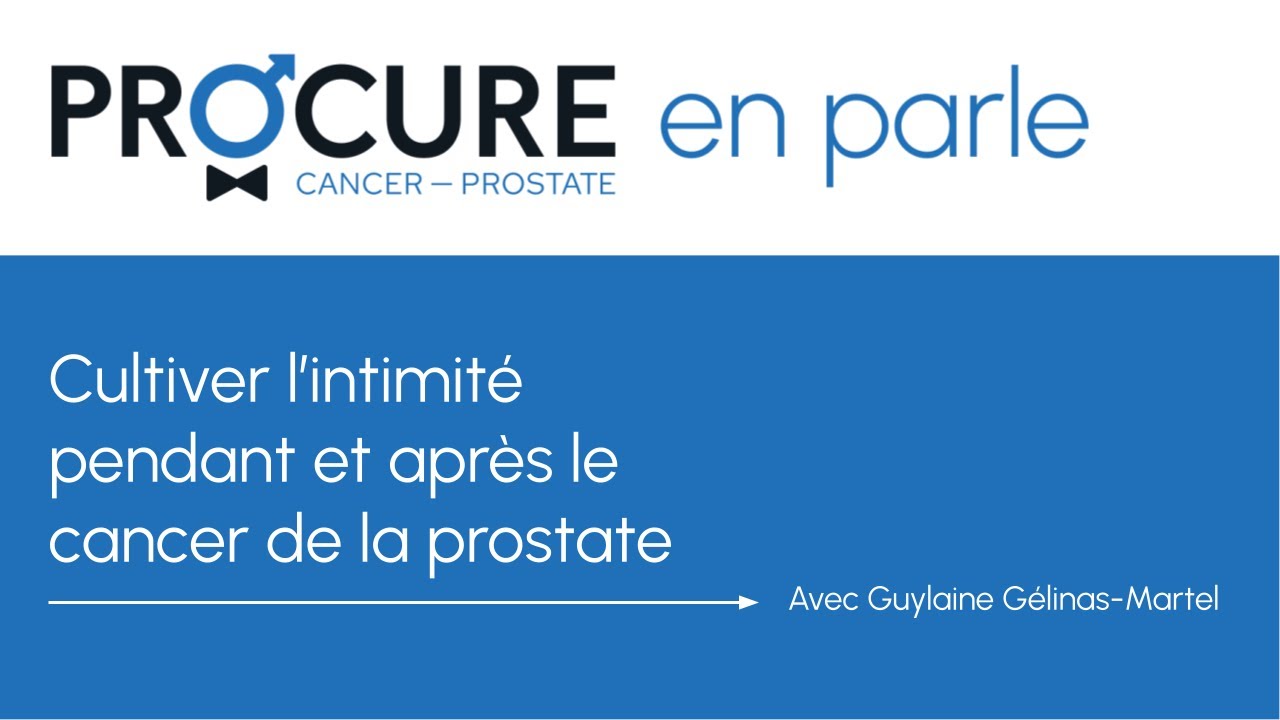
Cultiver l’intimité pendant et après un cancer de la prostate
Comment les couples peuvent-ils maintenir l’intimité pendant et après le traitement du cancer de la prostate? Est-il possible de cultiver l’intimité?
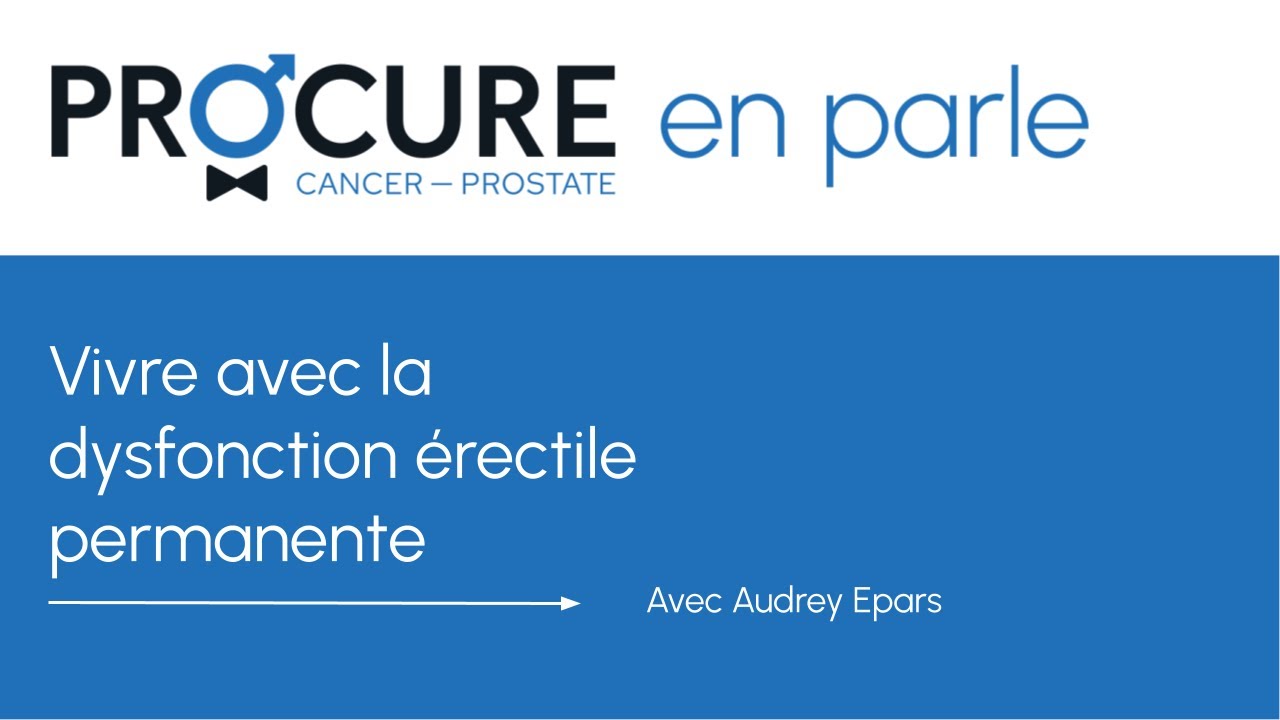
Vivre avec une dysfonction érectile permanente
Gérer la DE permanente après un cancer de la prostate est délicat. Découvrez des stratégies pour y faire face.
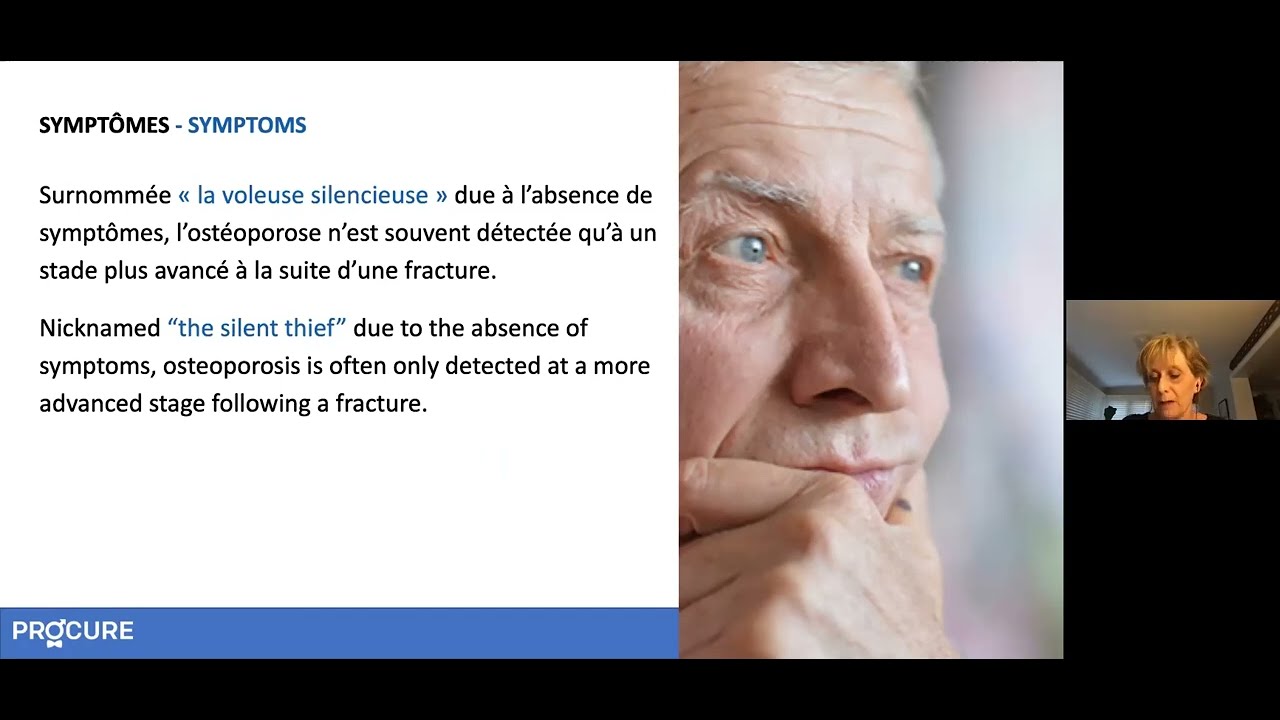
Fracture de la hanche? Non merci! Santé des os au masculin
Les ajustements alimentaires et physiques peuvent améliorer la santé de vos os et diminuer les risques de fractures.
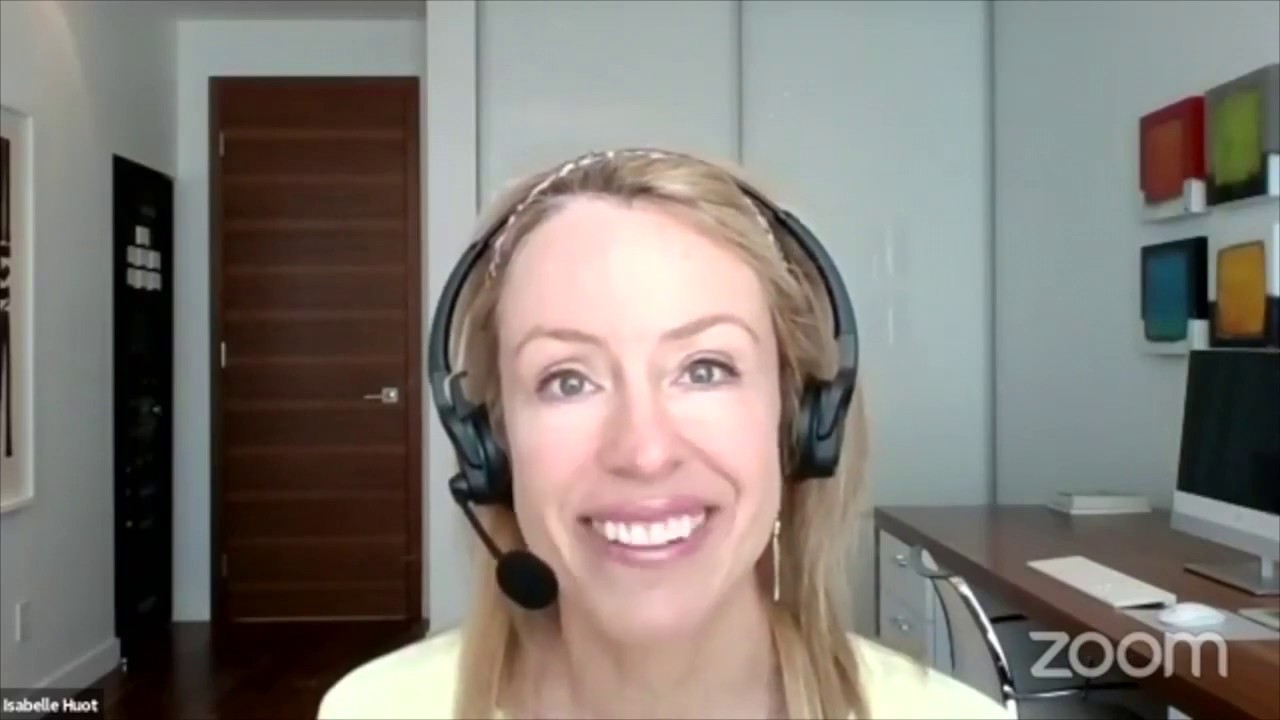
Q-R – Nutrition en période estival
Trucs et conseils alimentaires de notre experte Dre Isabelle Huot pour profiter de l’été.
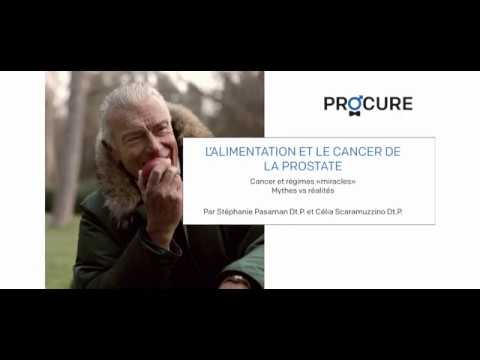
Nutrition et régime miracle
Les aliments et les régimes anticancers existent-ils vraiment? Mythes et réalités.
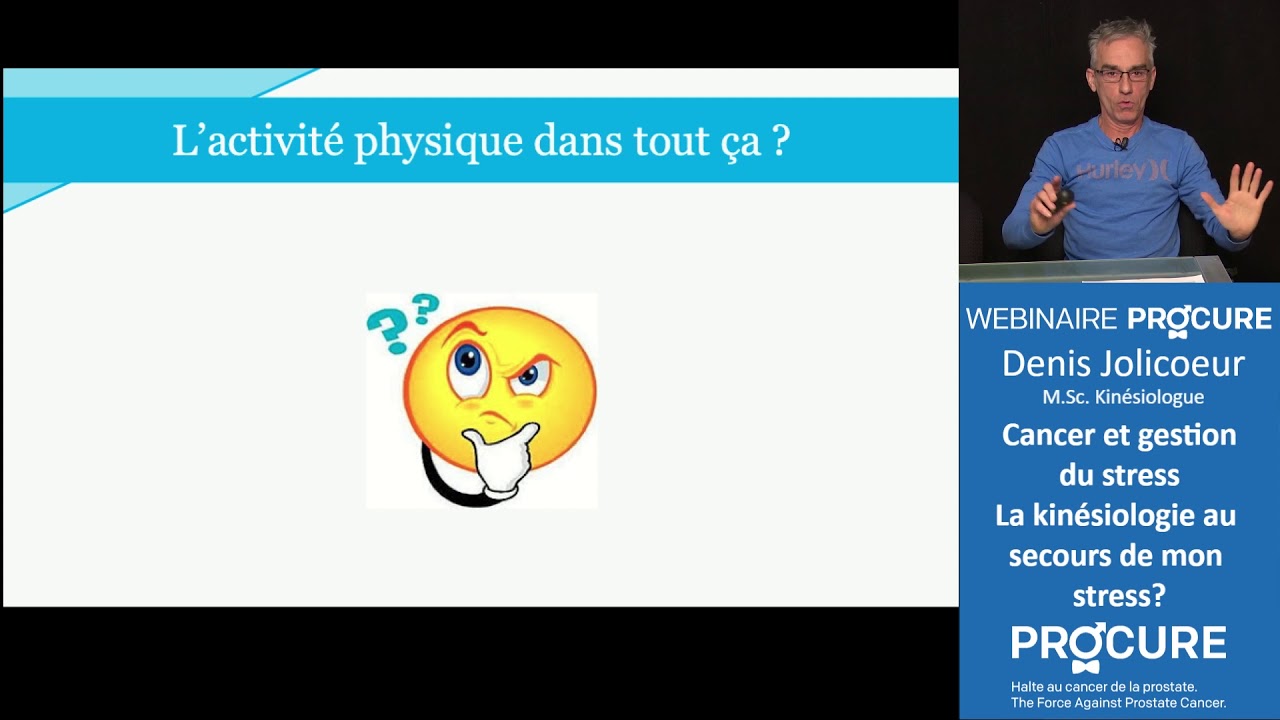
Cancer et gestion du stress
La kinésiologie peut-elle venir au secours de mon stress?
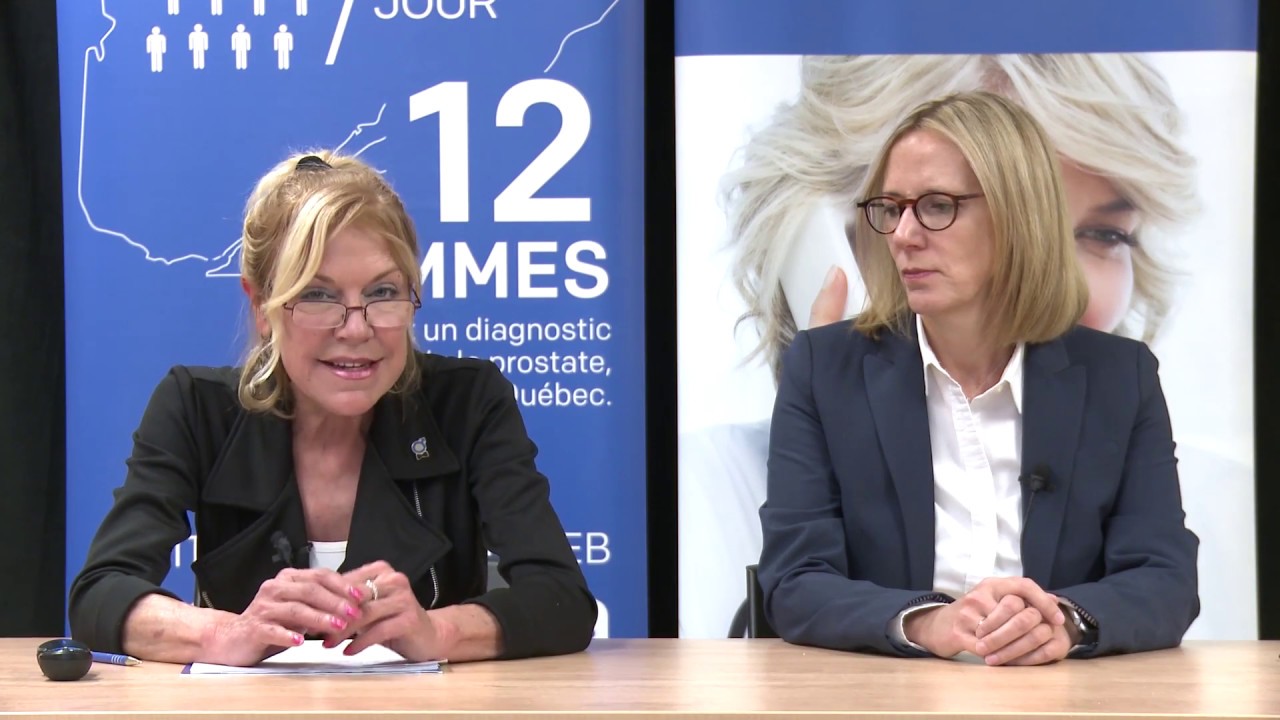
Gestion de la fatigue et du sommeil
Trucs, conseils et démonstration que nous pouvons mieux gérer la fatigue en facilitant un sommeil réparateur.
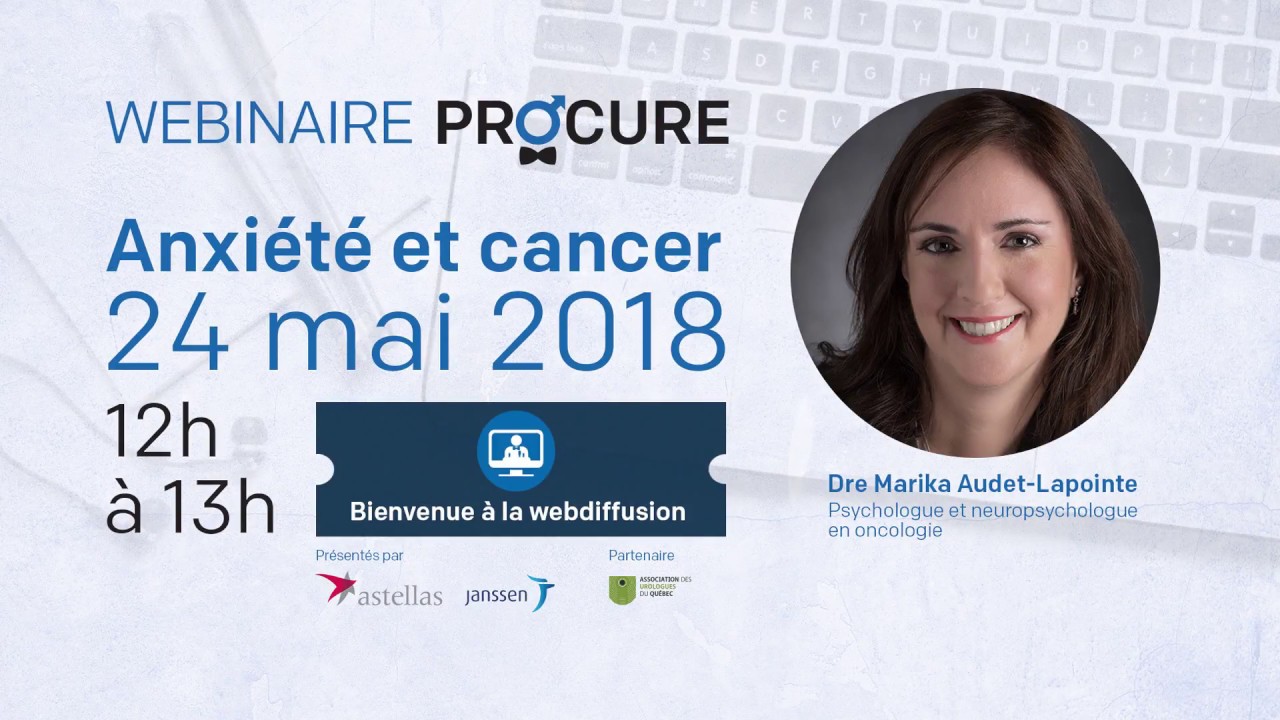
L’anxiété en période de cancer
Démonstration par des exemples concrets et des métaphores, que nous pouvons apprivoiser l’anxiété et le stress.
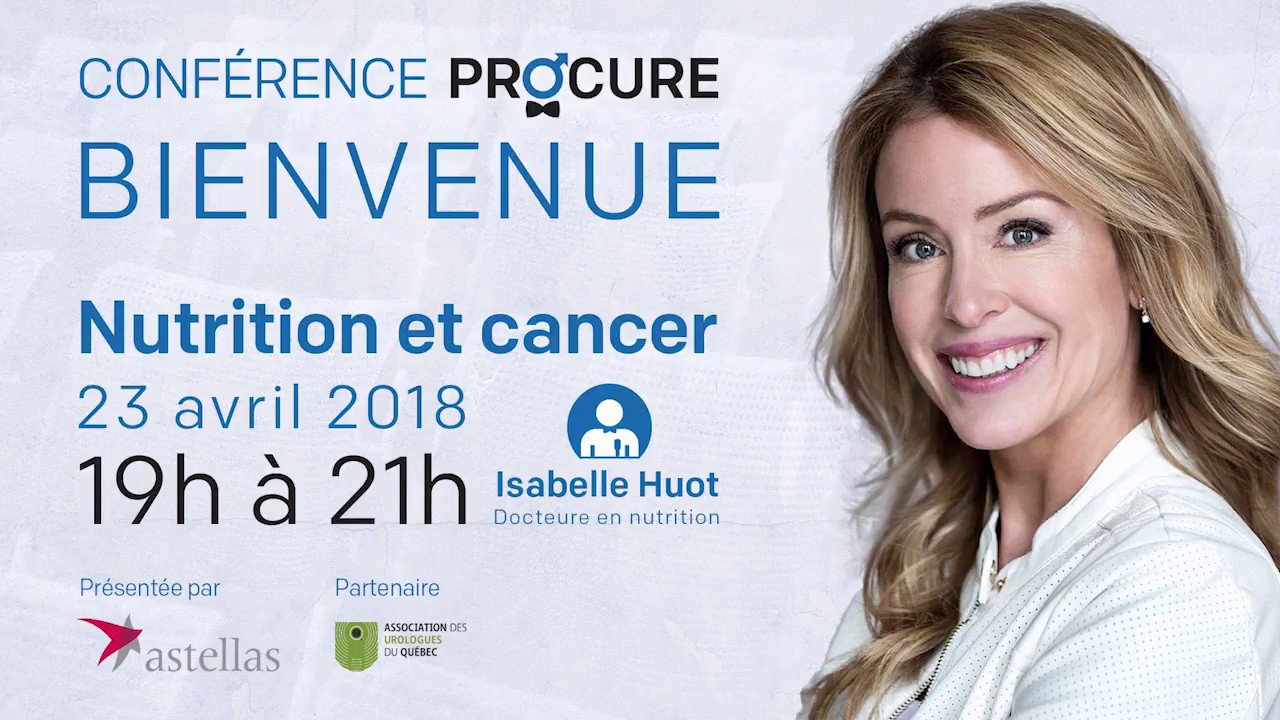
Nutrition et cancer avec Dre Isabelle Huot
Cette conférence offre des exemples concrets de recommandations alimentaires pour les patients.

Vivre pleinement, boire modérément
Vivre pleinement, boire modérément aborde les avantages de réduire la consommation d’alcool et bien manger.

Redécouvrir le bien-être après les traitements
À la fin des traitements, les patients traversent une période d’ambivalence, mêlant inquiétudes et soulagement. Durant cette phase, la redécouverte du bien-être devient un objectif majeur.

Votre pénis est courbé?
Portez-vous à gauche, à droite, vers le haut ou vers le bas? Votre pénis est courbé et vous, ou votre partenaire, voulez savoir pourquoi?

Orgasme sans érection?
Il est tout à fait possible pour un homme de parvenir à l’orgasme sans érection ni pénétration et il existe plusieurs façons d’y parvenir.

Recettes santé simples et faciles à concocter
Quelle que soit la saison, pourquoi ne pas en profiter pour cuisiner des recettes santé toutes simples et facile à réaliser, riches en nutriments bénéfiques pour votre cœur et votre prostate?!

Nouveau départ avec de nouvelles habitudes
Nous ne sommes pas obligés d’attendre au premier janvier pour décider d’un nouveau départ avec de nouvelles habitudes au cours de notre vie.

Lait chaud pour mieux dormir?
Un verre de lait chaud pour mieux dormir peut-il vraiment vous plonger dans les bras de Morphée ? Le Détecteur de rumeurs nous informe.
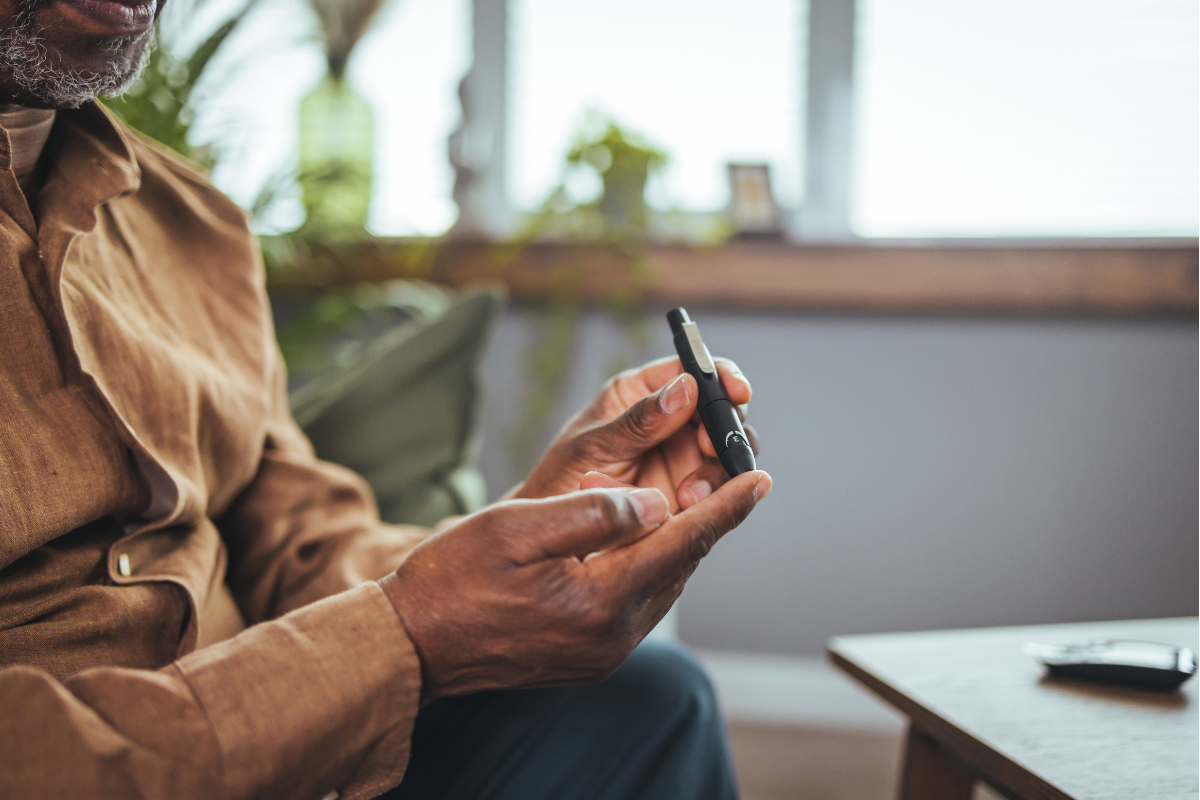
Je suis un tout petit peu diabétique
Mon médecin m’a informer que je suis un tout petit peu diabétique et que je devrai apporter des changements importants à mon mode vie.
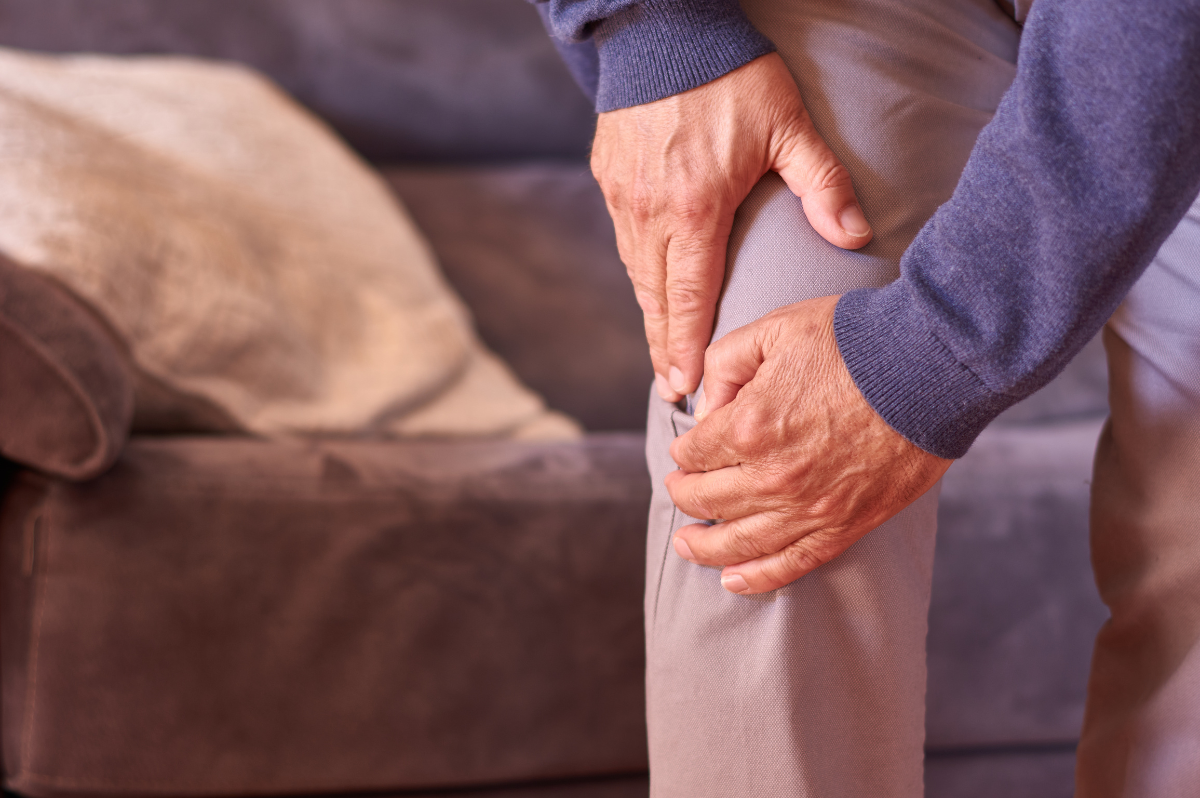
Soins de vos os en 5 points
Surnommée « la voleuse silencieuse » due à l’absence de symptômes, l’ostéoporose n’est souvent détectée qu’à un stade plus avancé à la suite d’une fracture.
Sources et références
Dernière révision médicale et éditoriale: janvier 2024. Voir notre comité de valiation de nos pages Web et nos collaborateurs en cliquant ici.

